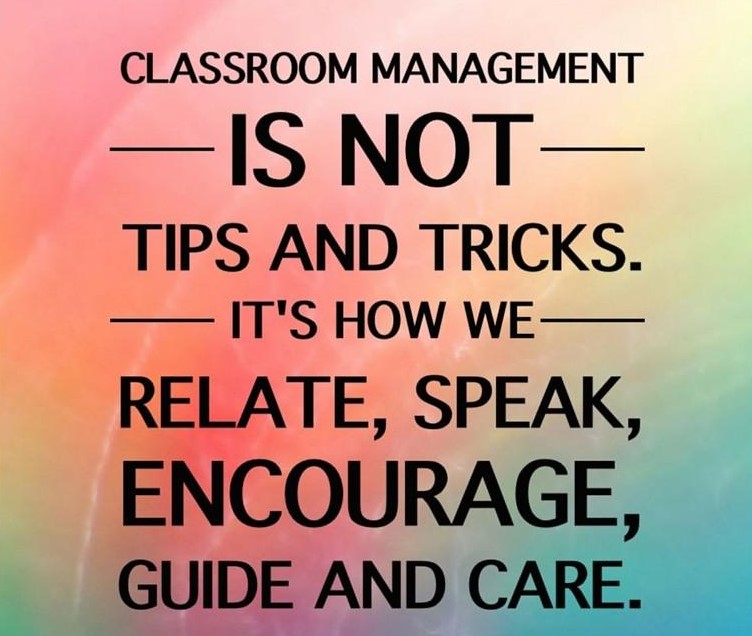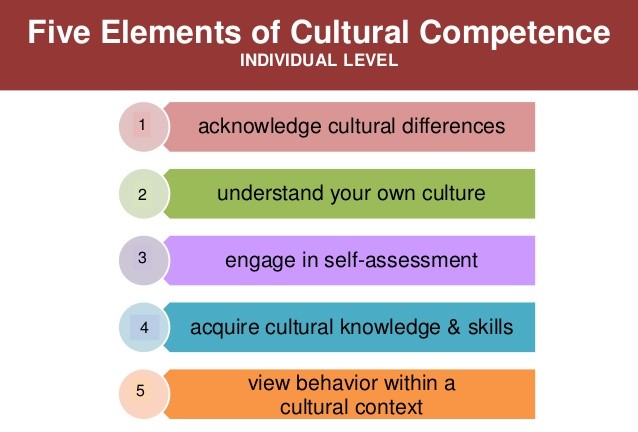Teacher Traits for Teaching Great
By David Shaffer
As an educator, no one wishes to be merely a mediocre teacher. We all wish to be thought of as very good or great teachers by our colleagues, our institution’s administration, and probably most importantly, by our students. There are numerous traits that contribute to making a teacher great. In the previous two installments of this column, we discussed ten of them (Gwangju News, May and June 2023), but I would be remiss to limit the discussion to those ten when there are so many more important traits to consider. I do not wish to suggest that a single teacher must excel at each of these great teacher traits, but it is obvious that the greater one excels at each trait and the more traits that one excels at, the more likely they are to be thought of as a great teacher. The great teacher traits presented here – as well as the ones presented earlier – are in no particular order of importance. I consider them all to be of equal importance.

Incorporating Technology
Educational technology is ubiquitous in a country like Korea where every public school and university classroom is equipped with, at the very least, a computer, projector, and screen. Gone are the days when the only technology an English teacher needed to know was the six buttons on a tape recorder and the light switch. This is now an era where almost every student has a smartphone that gets hours of daily use. Though possibly not with a silver spoon in their mouth, most students in the Korean classroom grew up with a smartphone in their hand. These students as referred to as “digital natives,” while teachers who grew up before computers became a household item are labeled “digital immigrants” – they were introduced to computers and related technology in their adult years and had to get used to something quite alien to them.
I remember my introduction to modern-day technology. Universities in Korea were one of the first institutions to supply their personnel with computers, but that didn’t happen until 1997. The learning curve was steep, the blue screen of death was frequent, and the fear of losing the project you were working on was real – a fear that still lingers in the back of my mind. But whether a digital native or digital immigrant, each teacher needs to acquaint themselves with commonly used classroom technology: video clips, PowerPoint, multimedia presentations, etc.
Great teachers will, however, not stop at this. The will familiarize themselves with learning management systems (LMS; e.g., Moodle, Edmodo, Google Classroom) and new apps that they might be able to apply to educational purposes (e.g., Quizlet, Quizziz, Padlet, Kahoot!, Flipgrid, Socrative Teacher, and many more). They will experiment with them and find meaningful ways to incorporate them into lessons to make their classes more efficient learning experiences. Great teachers will also realize that, although students may be whizzes at anything social media-related, they may need detailed instruction in the use of other types of apps. And now there is AI, such as ChatGPT, which outstanding teachers will familiarize themselves with, discover effective teaching uses, and inform their students of the do’s and don’ts associated with it.
Moment for Reflection: To what extent have you delved into researching new technology for teaching purposes, incorporated it into your lessons, and instructed students in the use of technology they are required to use?

Excelling at Classroom Management
Classroom management is a broad domain. It overlaps with creating an environment for learning, which we discussed in our last issue, as well as a positive teacher–student relationship, which we also discussed there. However, classroom management also includes techniques for shaping or controlling student behavior. A couple of examples should suffice: It is time to begin class. The rambunctious students are making a ruckus. The first instinct of some teachers is to shout over the student noise, “QUIET! CLASS, it’s time to begin!” But by doing so, the teacher is only modeling bad behavior. The student will think, “If it’s okay for the teacher to yell, it’s okay for me, too!” The more accomplished teacher will stand quietly in a spot known as the class-starting spot and silently wait, or raise their hand in that spot, or tap on their desk and wait.
The great teacher will be adept at using stirrers and settlers. When students seem sluggish, such as after lunch, the teacher will start out with a stirrer activity to activate the students. When the students are overly active, such as when returning from recess, the teacher may begin with a settler activity to calm the students down and alternate stirrer and settler activities throughout the lesson. These are especially useful for the teacher of young learners, as are routines. The exceptional teacher will work general routines into their classes (e.g., attendance check > listening > speaking > vocabulary > pronunciation, etc.) so that the students will be more aware and relaxed, and less anxious and disquieted. They will also take into consideration different seating arrangements for different group activities and which student groupings (random, friends, proficiency level) are best for particular small group activities and project work. The great teacher is a master at classroom management.
Moment for Reflection: How would you rate your own classroom management skills? What particular classroom management skills would you like to improve upon?

Having Cultural Competence
Teaching a foreign language by its very nature involves the teaching or explaining of the cultural concepts embedded in the language and lives of the speakers of the language being taught. As Korea is an extremely homogeneous nation with respect to language, traditions, and race, this makes the understanding and acceptance of another culture that much more difficult. If the English teacher in the Korean classroom is an expat, the presence of culture differences is obvious as soon as that teacher walks through the door.
The great teacher will have great cultural competence. They will have an awareness of as well as an understanding of their own culture. They will acknowledge that there are culture “differences” and not judge that aspects of one culture are good and those of another are bad, but rather just different. They will engage in self-assessment, determining the depth and breath of both their own culture and that of their students. In the areas where they determine that they are weak, they will seek to acquire culture knowledge and skills. And very importantly, they will be able to view and understand a cultural behavior within a cultural context. Take for example the wearing of shoes in the house as opposed to taking them off at the door. If the taking off of shoes is put in the context of floors often being used for sitting, the custom makes sense. Also, if wearing shoes in the house in placed in the context of not using floors for sitting and other activities, that custom no longer seems so disagreeable.
Great teachers are aware of their culture competence in both that of their own L1 and that of their students’ L1, and they consistently try to improve both. They will also attempt to instill in their students a sense of culture understanding in a manner similar to the way they improve their own culture competence.
As a final comment on cultural competence, Korean students often place a high value of their expat teacher’s ability to speak Korean in their evaluation of that teacher’s overall culture competence. So, making a serious effort at learning Korean (and using it at appropriate times in the classroom) can raise the expat teacher’s cultural competence score considerably in the eyes of their students.
Moment for Reflection: How knowledgeable are you about your own culture and about your students’ culture or cultures. How well do you convey the differences between your students’ culture/cultures and the culture of the speakers of the language you are teaching (e.g., English)?

Having Good Communication Skills
How many times have you heard an English teacher say, “My students just don’t listen. I told them to do such-and-such, but none of them did it – not a single one!” It may have been that the students were disobeying the teacher for some particular reason, but much more likely, the inaction on the part of the students was a result of the teacher’s lack of good communication skills. Did the teacher speak at their normal motorcycle speed or at a comfortable speed for their students? Did the teacher speak at their own vocabulary and syntax level or at that of their students? Did the teacher repeat what they had said? Did they say it a second time rephrasing it differently? Did the teacher use concept checking questions (CCQs) to confirm that the students had understood correctly? A “no” answer to one or more of these questions could result in students not understanding. The exceptional teacher will speak reasonably slow and clear, they will speak at their student’s level, they will repeat and rephrase what they first said, and they will use CCQs to determine if their students understood correctly.
Good communication skills, however, go beyond the sentence level. Much like the structure of a written paragraph, an easily comprehensible piece of spoken text will include a topic sentence, supporting sentences, the main idea, and a brief conclusion. The great teacher will structure their oral language in this manner and teach their students to do likewise. They will not only hone their own communication skills but also pass them on to their students.
Moment for Reflection: How good are your communication skills? Do you find that you are blaming your students for not understanding when it might be that you are not properly conveying?
Having Good Organizational Skills
The teacher rushes to school, grabs their coursebook to see what lesson is next in the book, reads the activity instructions, and walks into the classroom with fingers crossed. This is an example of a teacher lacking in organizational skills. The organized teacher will plan ahead, preparing lessons in advance and having those plans in writing for easy referral. They will use organizational resources such as daily planners and daily reminder apps. The organized teacher will prioritize the many tasks on their plate, and reduce distractions in order to focus on the task at hand.
The teacher with exceptional organizational skills will delegate tasks (e.g., having students distribute handouts) so that they can focus on more pressing tasks. They will be good at time management, creating schedules, setting deadlines for themselves and their students, and keeping to the due dates. They will be good at managing class projects and communicating their instructions and expectations. Great teachers exhibit exceptional communication skills.
Moment for Reflection: How great are your organizational skills? What could you do to improve upon them?
In addition to the above teacher traits, here is a list of the great teacher traits discussed previously:
- Understanding of the subject matter
- Using current teaching methodology and techniques
- Using a well-balanced teaching approach
- Being a lifelong learner
- Belonging to a professional learning community
- Having a passion for teaching
- Knowing one’s students
- Understanding students’ needs
- Knowing how to engage one’s students
- Creating an environment for learning
Gwangju-Jeonnam KOTESOL
Upcoming Event
Gwangju-Jeonnam Chapter Workshop
- Date: July 8, 2023 (Saturday)
- Title: Cheerleading the Self-Directed Investigations of EFL Teachers
- Presenter: Maria Lisak
- Venue: Gwangju National University of Education,
Check the Chapter’s webpages and Facebook group periodically for updates on chapter events and other in-person and online KOTESOL activities.
For full event details:
- Website: http://koreatesol.org/gwangju
- Facebook: Gwangju-Jeonnam KOTESOL
The Author
David Shaffer, PhD, has been involved in TEFL, teacher training, writing, and research in Gwangju for many years as a professor at Chosun University. As vice-president of the Gwangju-Jeonnam Chapter of KOTESOL, he invites you to participate in the chapter’s teacher development workshops and events (in person and online) and in KOTESOL activities in general. Dr. Shaffer is a past president of KOTESOL and is the editor-in-chief of the Gwangju News.



